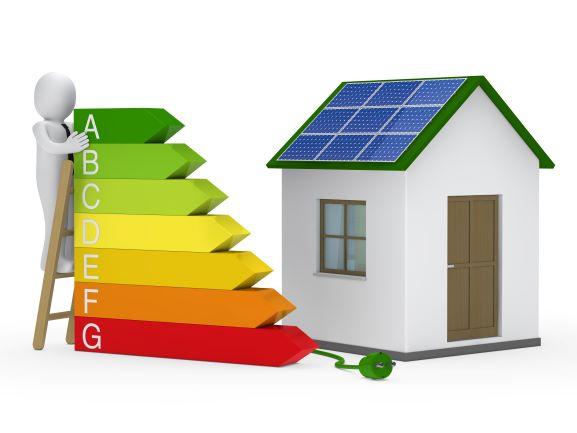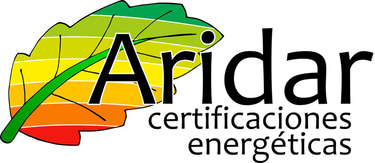Preguntas Frecuentes sobre Certificados Energéticos, Cédula de Habitabilidad y Servicios Relacionados
Preguntas Frecuentes sobre Certificados Energéticos, Cédula de Habitabilidad y Servicios Relacionados
PREGUNTAS FRECUENTES
1/11/20254 min read


Frequently Asked Questions
### 1. What is a Certificado Energético and why is it important?
A Certificado Energético (Energy Certificate) evaluates the energy efficiency of a property. It’s a mandatory document when selling or renting a property in Spain. It helps prospective buyers or tenants understand the energy consumption of the building and its environmental impact, potentially saving on utility costs.
### 2. How can I obtain a Cédula de Habitabilidad?
A Cédula de Habitabilidad (Certificate of Habitability) certifies that a property meets the minimum living standards, including safety and health regulations. To obtain it, you must submit a request to the local government with the necessary documentation, including proof of the property’s suitability for residence.
### 3. What is an Inspección Técnica de Edificios (ITE) and who needs it?
An Inspección Técnica de Edificios (ITE) is a mandatory inspection for buildings over 50 years old to assess their structural and safety conditions. Property owners must ensure that their buildings pass the inspection to avoid penalties and ensure compliance with municipal regulations.
### 4. What are Planos Arquitectónicos and why are they necessary?
Planos Arquitectónicos (Architectural Plans) are detailed drawings that represent the design of a building or space. They include layout, measurements, and structural details, essential for construction, renovations, and obtaining permits. Accurate architectural plans are necessary for ensuring the legal and safe development of any property project.
### 5. How do Certificaciónes Energéticas impact property transactions?
Certificaciónes Energéticas (Energy Certifications) are crucial when selling or renting properties in Spain. They assess a building’s energy performance, impacting its market value and desirability. A higher energy efficiency rating can make a property more attractive to potential buyers or tenants looking for lower utility bills.
### 6. What is the validity period of a Certificado Energético?
A Certificado Energético is valid for 10 years from the date of issue. However, property owners should update it whenever significant changes are made to the building’s energy systems, such as installing solar panels or improving insulation, as these may affect its energy efficiency rating.
### 7. How much does a Cédula de Habitabilidad cost?
The cost of obtaining a Cédula de Habitabilidad varies depending on the location and size of the property. It generally involves administrative fees paid to the local authority, as well as potential costs for inspections or required documentation. Contact the local town hall for exact pricing details.
### 8. What does an Inspección Técnica de Edificios entail?
An Inspección Técnica de Edificios (ITE) involves a thorough examination of a building's structural elements, including facades, roofing, and installations. Certified professionals assess the building's safety and habitability to ensure compliance with local building codes and regulations. Depending on the findings, necessary repairs or improvements may be required.
### 9. How can I update my Planos Arquitectónicos?
If you need to update your Planos Arquitectónicos, you must hire a qualified architect to draw up new or revised plans. This could be necessary for any renovations, expansions, or modifications to the original structure. Updated plans are essential for obtaining new permits and ensuring that the project complies with building regulations.
### 10. Are Certificaciónes Energéticas required for newly built properties?
Yes, newly built properties must have a Certificación Energética before being sold or rented. The certificate ensures that the construction meets energy efficiency standards and complies with regulations aimed at reducing carbon emissions and promoting sustainable building practices.
### 11. Can I renew my Certificado Energético without conducting an energy audit?
In most cases, a new Certificado Energético requires a fresh energy audit to evaluate the current energy performance of a building. However, if no significant changes have been made to the property’s energy systems, the certificate may be renewed without a full audit, but this depends on local regulations.
### 12. Is an Inspección Técnica de Edificios mandatory for all buildings?
An Inspección Técnica de Edificios (ITE) is mandatory for buildings older than 50 years. However, some regions may have additional rules requiring inspections for younger buildings or properties undergoing major renovations. Check with local authorities to confirm the specific requirements for your building.
### 13. How long does it take to get a Cédula de Habitabilidad?
The processing time for a Cédula de Habitabilidad varies by location but generally takes between 1 to 3 weeks. The timeline depends on the completeness of your application, required inspections, and the administrative workload at the local town hall.
### 14. How can Planos Arquitectónicos help during a renovation project?
Planos Arquitectónicos are essential during renovations as they provide a clear and accurate representation of the space. They help architects, contractors, and engineers plan the project, obtain necessary permits, and ensure that the renovation complies with building codes and safety regulations.
### 15. Can I sell a property without a Certificado Energético?
No, it is illegal to sell or rent a property in Spain without a valid Certificado Energético. This certificate must be presented to prospective buyers or tenants to inform them about the building’s energy efficiency. Failing to provide this document may result in fines.
### 16. What happens if my Cédula de Habitabilidad expires?
If your Cédula de Habitabilidad expires, you must request a renewal from the local authorities. Without a valid certificate, your property may not be eligible for sale or rental. Ensure that you maintain the certification by renewing it before the expiration date.
### 17. Who is responsible for obtaining the Certificación Energética?
The property owner or seller is responsible for obtaining the Certificación Energética. It is recommended to hire a certified energy assessor to perform the evaluation and issue the certificate in compliance with local regulations.
### 18. Do I need a new Inspección Técnica de Edificios after repairs?
If your building has undergone major repairs, you may need a new Inspección Técnica de Edificios to ensure that the structure remains compliant with safety and habitability standards. It is best to consult with local authorities to determine if a new inspection is required.
### 19. What documents are required for a Planos Arquitectónicos submission?
When submitting Planos Arquitectónicos, you will need to provide the architectural drawings, property details, and proof of ownership. Depending on the project, additional documents such as structural reports, environmental assessments, or planning permissions may also be required.
### 20. Are Certificaciónes Energéticas mandatory for commercial properties?
Yes, Certificaciónes Energéticas are mandatory for both residential and commercial properties in Spain. If you plan to sell or lease commercial space, the property must have a valid energy certificate to ensure compliance with energy efficiency regulations.
